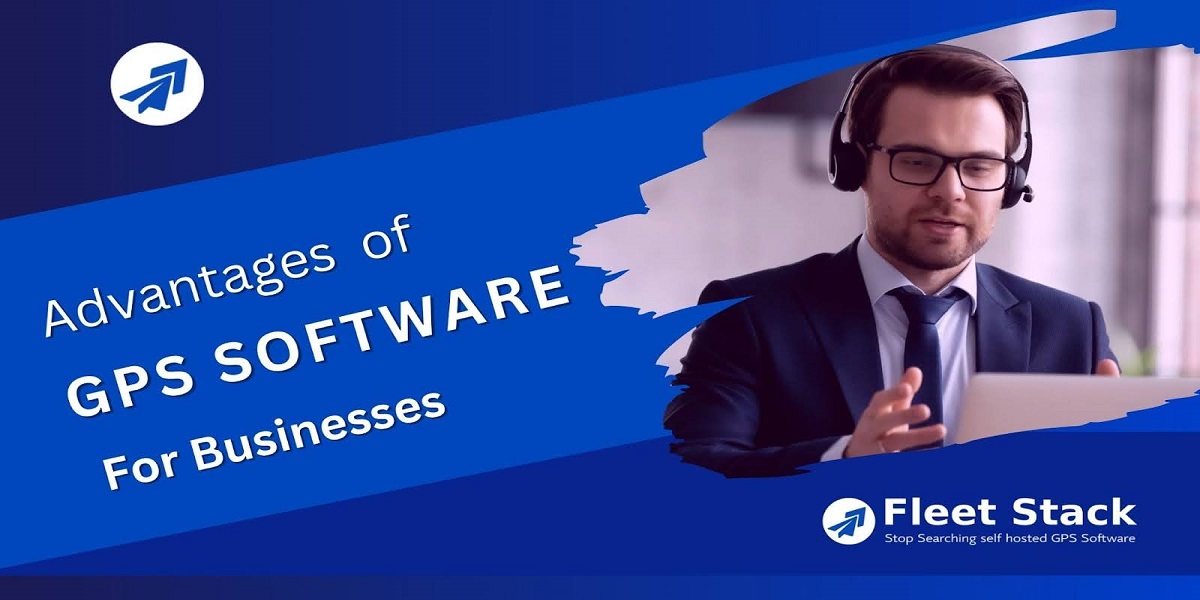Benefits of GPS Tracking System for Businesses

GPS tracking systems have completely changed how companies and private owners maintain their automobile fleets. With features like tracking position, speed, and driving behavior in real-time, this technology offers valuable information for enhancing effectiveness, safety, and cost-cutting strategies. In other words, having the benefits of GPS tracking system can help businesses grow further.
Many businesses, especially those in logistics, invest in GPS tracking software, which is a well-proven technique that extends well beyond map points. The first step in making the most of GPS tracking is to comprehend its advantages and determine how it may support your company's objectives. This article presents you with insight into the benefits of GPS tracking system and other aspects of the tool.
What is a GPS Tracking System?
Before we discuss the advantages of GPS tracking system, let's define and explain GPS vehicle tracking software. The Global Positioning System, or GPS, tracks the precise location of any object on Earth through a network of satellites.
Fleet tracking systems gather data in real-time from a fleet of vehicles, such as automobiles, trucks, etc., using embedded IoT sensors. Fleet managers can use this real-time data to help them make well-informed decisions. Fleet monitoring systems can gather data from the vehicle, combine it with data already present in business apps, analyze it intelligently, and display it in user-friendly dashboards for consumption.
According to some studies, investing in GPS fleet management software can help with benefits including:
- Economical driving improved by 15%.
- Harsh-braking incidents decreased by 75%.
- Engine idle time is down by 60%
- Driving hours decreased by 20%.
- Safety incidents were reduced by 20%.
How does a GPS Tracking System work?
The overall working system of the GPS tracking system for vehicles is similar to other GPS mapping devices. The software sends information to a central system from the onboard GPS gadget of a car.
The information gathered includes coordinates for the location, speed, and time-stamped route history. After processing, this data is presented in an easy-to-use interface for quick access and examination.
Real-time data transmission to the central system is accomplished via GPS tracking software through cellular or satellite networks. This makes it possible to provide precise and fast updates on a car's location as well as other crucial information.
Several GPS-tracking software companies also provide mobile apps that let customers access this data on their smartphones or tablets, making car monitoring even more convenient when on the road.
What are the Benefits of GPS Tracking System for Businesses?
Let us now check some of the advantages of GPS tracking system can offer to businesses.
Highly Improved Safety
Any fleet management company's primary objective is to improve the overall safety of the vehicles and drivers. This entails maintaining well-maintained cars, monitoring driver behavior, and ensuring that safe driving procedures are being followed.
The majority of fleet tracking companies feature digital maintenance programs that let you make maintenance plans and set up automated alerts based on scheduled maintenance or odometer readings. Additionally, you may set up digital procedures for maintenance and inspections so that your teams of drivers and maintenance personnel can report issues that need to be fixed right away.
Lower's the Insurance Cost
Suppose a vehicle deviates from its intended path. In that case, fleet monitoring systems can detect it and promptly notify the appropriate department, increasing the likelihood of recovery if the vehicle within it is stolen. In addition to offering behavioral insights, these technologies motivate fleet drivers to drive more cautiously when using company vehicles. Because of this, insurance firms provide exclusive savings on cars with GPS tracking devices, resulting in premium reductions of up to 30%.
Less Fuel Cost
According to a report by the IEA in 2023, the demand for oil as a transportation fuel is expected to decrease starting in 2026 as a result of greater biofuel use, efficiency gains, and the quick adoption of EVs and hybrids. Depending on the possibility of direct electrification, the rate of change differs for various types of transportation. GPS tracking systems come with features that can notify management of unauthorized fuel use.
By ensuring that drivers are taking the most direct routes to their employment, you may also cut down on fuel expenditure. Your team can make sure that they are allocating tasks to the closest vehicle, using the most economical routes, and using the least amount of gasoline through the proper route planning and dispatching tools.
Less Cost of Fleet Maintenance
Modern car monitoring systems have cutting-edge capabilities that let you monitor essential aspects of your car's health, like fuel level indications, engine temperature indicators, and vehicle diagnostics. By examining all of this data, you can reduce the number of pointless car inspections and limit maintenance to only what is required, which will save money and increase the lifespan of your parts and vehicles.
Overall Improvement in Route Planning
GPS tracking systems allow drivers to plan their routes and receive comprehensive directions for their whole trip even before they set off. Lowering the use of cell phones while driving raises road safety and ensures more adherence to the law.
Real-Time Alerts
One of the benefits of GPS tracking systems for businesses is that you can monitor your linked cars around the clock, and geofencing tools notify you when drivers deviate from set itineraries. Fleet managers may increase profits, boost productivity, and pinpoint the best drivers by evaluating real-time data gathered from embedded IoT sensors. This gives them better control over the operation of their fleet.
Increase in Overall Productivity
Increasing output will save you money and time. Businesses may measure driver productivity by keeping an eye on how much time drivers spend at job sites or loading bays with the use of a GPS fleet tracking system. Moreover, companies can cut down on waste by making sure the closest car is directed to a task.
Digitizing crucial procedures can also increase productivity. Fleets may speed up back-office activities like inventory management, billing, and digital signature capture by utilizing proof-of-delivery and customized forms.
Boost Client Satisfaction
Businesses investing in the GPS tracking system can use up-to-date data about the route and performance of the vehicle to enhance customer satisfaction and adhere to legal requirements. With accurate and trustworthy shipping information, you can also improve the customer experience by enabling your fleet to promptly respond to service requests and deliver goods to customers on schedule.
Easy Integration with Business Software
One of the advantages of GPS tracking system is that you can connect your supply chain and logistics software with it. This allows you to send and receive information about cars in transit and retrieve shipment data. Supply chain management software can also automatically create incidents and alerts to address problems like vehicle breakdowns and shipping delays.
Conclusion
Businesses in a variety of industries now depend heavily on GPS vehicle monitoring software due to the growing demand for effective fleet management. If you are convinced of the benefits of GPS tracking system for businesses, you can invest in the market's best.
Hyperlink InfoSystem - Most Trusted End-to-End development Solution Provider.
Write For Us





